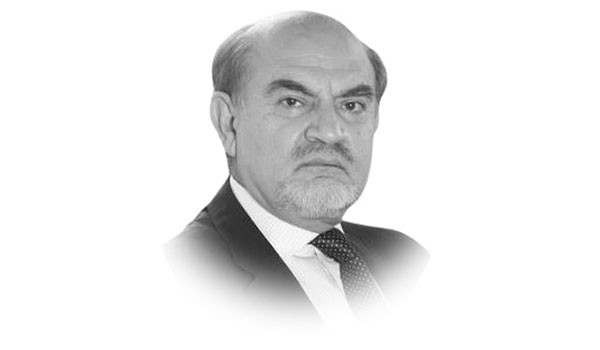Trichotomy of powers and political stability in Pakistan
TRICHOTOMY of powers is the norm in most democracies so that no single branch of government wields greater power than the others and yet, it ensures regulative checks and balances among all.
But sometimes, this is easier said than done, due to unintentional omissions, ambiguities or gaps in the constitution or the interpretation of its spirit.
As witnessed recently in Pakistan, this necessitates judicial intervention in the domain of Parliament and as a consequence, the judiciary is wrongly accused of politicization.
But in many countries, judicial review is considered a key check on the powers of the executive and the legislative, if they exceed their authority.
This is more applicable where the so-called ‘common law’ legal system is in vogue.
Pakistan inherited and adopted this system from the British at independence and hence, judges are sometimes seen as sources of law, capable of creating new legal principles or rejecting legal doctrines that are no longer valid.
The other distinct legal system is known as ‘civil law’, wherein, judicial review is less ubiquitous, legal precedent is given smaller weightage and it is considered fair to treat similar facts differently on different occasions and under different environments.
The former has sometimes led to the so called real or perceived ‘judicial activism’ in the past in Pakistan.
However, theoretically, in Pakistan, the powers of legislative and the executive are derived from Article 7 and that of judiciary from Part VII of the Constitution and none can encroach on the jurisdiction of others.
Under Article 184(3) of the Constitution, the Supreme Court (SC) of Pakistan also has the authority to exercise suo motu powers to take action on a matter, subject to any of three conditions: It should be of public importance or should relate to fundamental rights enshrined in the Constitution and there should be no petition listed for hearing in the SC, compelling it to initiate action on its own.
For instance, exercising this power, the learned SC has passed judgements related to rescinding of the privatization of the Pakistan Steel Mills (2006), shutting down Rental Power Projects (2012), invalidated Reko Diq mining venture (2013), created dams construction Fund and ruled on eligibility of Parliamentarians holding dual nationalities(2018).
Prima facie, the first three verdicts lay in the domain of the executive under ‘principles of policy’ outlined in Chapter 2, Part II of the Constitution.
Further, it’s not clear if these interventions helped good governance, if that was the purpose.
However, such decisions tend to divert time and resources from the much needed judicial reforms, to grant prompt relief to people through expeditious resolution of cases.
Ironically, while we inherited this system from the British, acts of Parliament cannot be set aside under the doctrine of parliamentary sovereignty in the UK.
Another example is the Netherlands, where the Constitution expressly forbids the courts to rule on the question of constitutionality of primary legislation.
In the EU, only special constitutional courts can review legislation. In Pakistan, perhaps, neither the government nor the legislature has any significant role in appointments of superior judges as the Judicial Commission has a majority representation of judges and only a symbolic representation of Government and Bar Councils.
Based on this, it is argued by critics that this arrangement may be in conflict with the spirit of balance of power and that it could also obstruct judicial accountability.
Further, with the existing judicial system, where cases remain pending for years or stay orders remain in place for long, sustainability of economic or commercial activity becomes doubtful.
Besides, there are reportedly more than 2.1 million pending court cases in Pakistan, primarily because of three main reasons: lack of the needed capacity of the judiciary, absence of judicial reforms and failure of politicians to resolve constitutional and political issues outside the courts and inside Parliament.
After debate by domain experts, the impediments pointed out in this rendition must be removed by collaborative efforts of the executive, the judiciary and the parliament, through concerted efforts and frequent, close interactions.
For irreconcilable differences, the President could summon an emergency meeting of Parliament under Article 54 of the Constitution or enact an Ordinance for a compromise solution.
The three pillars of state alluded above; hold the structure of the state of Pakistan and they are the bedrock of all progress and development.
Hence, they must work in tandem, forth edifice to remain steady. Nonetheless, like in the past; circumstances may arise, where harmonious interaction becomes difficult or constitutional remedies are ineffectual.
In such situations, power could be delegated, temporarily to a new constitutionally created, neutral and suitably composed, Supreme National Council (SNC), in the larger national interest, for mediation and arbitration, to obviate extra-constitutional interventions and to put the country back on the path of democracy.
The SNC could also include the heads of the Pakistani defence forces, to preclude any unconstitutional involvement or compulsion by them.
Alternatively, like the past, the President could be granted back, discretionary powers to dissolve the National Assembly and call for fresh elections to deal with such milieus.
Enhancing the judicial capacity, constitutional amendment to restrict the No Confidence Motion in parliament to only once a year and electoral reforms, including phased introduction of EVMs for polling should also be expedited for greater legitimacy, transparency and post-election political stability.
Hoping that we can fix the stated difficulties of our democracy, sooner than later, I must emphasise that this rendition is not aimed at undermining the judiciary or Parliament.
It primarily highlights a perspective, lurking in the minds of aware Pakistanis, who have tremendous hopes in the future of democracy and who want to see Pakistan as a peaceful, stable and prosperous country.
Finally, it is only through meaningful and lawful restructurings, that an equitable distribution of power, unity of purpose and an enabling environment could be guaranteed, to promote the national interests of Pakistan.
—The writer is the former President of NDU.










